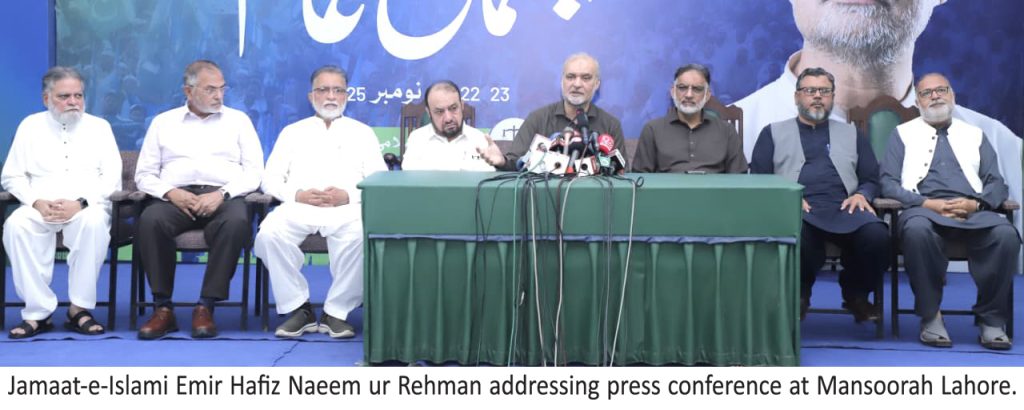LAHORE (PR): Jamaat-e-Islami Emir Hafiz Naeem ur Rehman has vowed that his party will not hesitate to launch a long march if necessary to secure the rights of flood-affected communities, warning that silence over injustice would only empower the oppressors.
Addressing a press conference at Mansoorah on Friday, Rehman criticized the government for relying solely on former US President Donald Trump for international advocacy and urged that India’s water aggression be taken up at the global level.
He reassured victims that JI would fight their case through courts, peaceful protests, and other democratic means. “Those who lost their homes must be provided with new housing by the government,” he demanded, adding that state institutions which issued NOCs to housing societies on riverbeds were responsible for much of the destruction.
The JI chief revealed that 40 lakh acres of farmland and more than 3,000 villages in Punjab had been affected by the floods, raising the specter of looming crises in rice, sugarcane, and wheat production. He urged the government to subsidize small farmers and reduce the prices of seeds, fertilizers, and pesticides.
Calling on the public to extend generous support, Rehman said that 15,000 Alkhidmat volunteers were actively engaged in relief efforts, running 31 centers and mobile health units across Punjab to distribute food and medicines. He also appealed to youth to join Alkhidmat as volunteers.
Flanked by JI Secretary General Ameerul Azeem, Alkhidmat Secretary General Waqas Anjum Jafri and others, the JI chief said both Indian aggression and government mismanagement worsened the disaster.
He noted that Punjab had gone without local body elections for a decade, while in Sindh, JI protests forced polls but defeated candidates were imposed. He stressed that JI would not use the tragedy for political point-scoring but would continue questioning the government’s failures.
“The rulers are diverting attention by initiating debates over disputed water reservoirs,” the JI Chief said.
“Pakistan is among the countries worst hit by climate disasters, yet successive governments have failed to present its case effectively before the world.”


